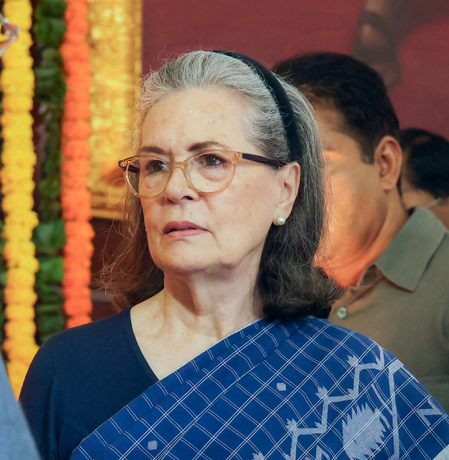
New Delhi – Congress Parliamentary Party (CPP) Chairperson Sonia Gandhi has sharply criticised the Centre’s Great Nicobar Island Project, calling it a “grave misadventure” that undermines tribal rights, bypasses due process, and threatens one of India’s most fragile ecosystems.
In an op-ed titled “The Making of an Ecological Disaster in the Nicobar” published in a leading daily, Gandhi warned that the project endangers the survival of the Shompen and Nicobarese tribes. “Our collective conscience cannot and must not stay silent when their very existence is at risk. Our commitment to future generations cannot allow this large-scale destruction of a unique ecosystem,” she wrote.
Gandhi argued that the ?2.72 lakh crore mega-infrastructure project poses an existential threat to indigenous communities, fragile biodiversity, and faces high natural disaster risks—yet is being pushed through “insensitively, in mockery of all legal and deliberative processes.”
She highlighted that the Nicobarese, already displaced by the 2004 tsunami, face permanent uprooting, while the Shompen, a particularly vulnerable tribal group, risk losing their forest habitat and cultural integrity.
Alleging that constitutional and statutory safeguards were ignored, Gandhi said the government failed to consult the National Commission for Scheduled Tribes and the Tribal Council of Great and Little Nicobar Islands, as required under Article 338-A. She added that the Social Impact Assessment excluded tribal stakeholders and the Forest Rights Act (2006) was disregarded.
Raising ecological alarms, Gandhi cited official estimates of 8.5 lakh trees to be cut—but said independent assessments suggest the number could reach 32–58 lakh. She also criticised the compensatory afforestation plan in Haryana, calling it ecologically irrelevant and pointing out that some of the land earmarked has been auctioned for mining.
She further flagged violations of CRZ 1A norms protecting turtle nesting sites and coral reefs, saying government committees had manipulated evidence. She also questioned the credibility of biodiversity studies, noting flawed methodologies such as using drones for dugong surveys and conducting turtle assessments off-season.
Emphasising seismic risks, Gandhi said: “Locating such a massive project in an earthquake-prone zone jeopardises investment, infrastructure, people, and the ecology.”
The Holistic Development of Great Nicobar Project spans over 160 sq km, including a transshipment port, international airport, township, and power plant.
With inputs from IANS